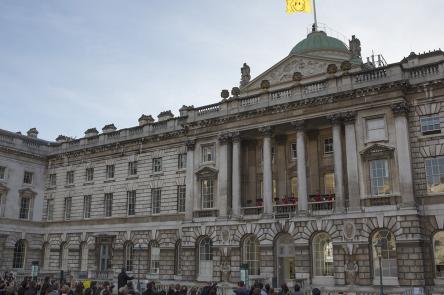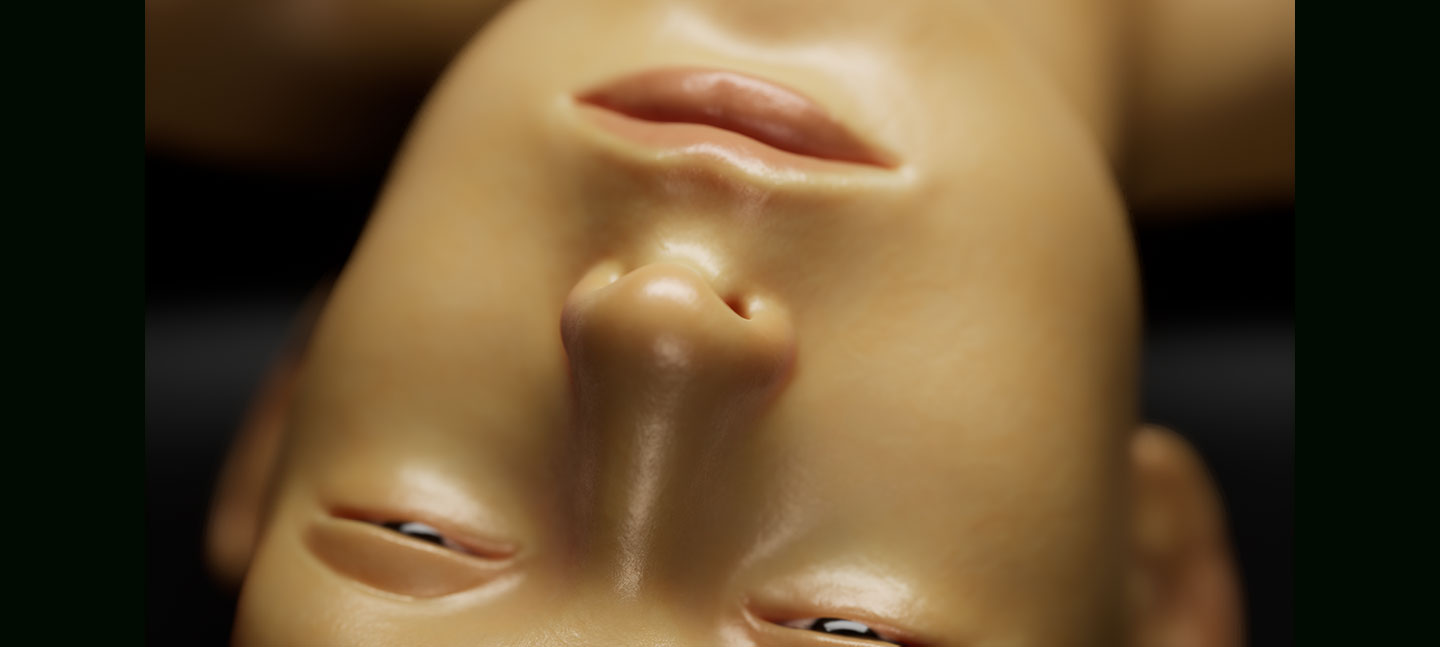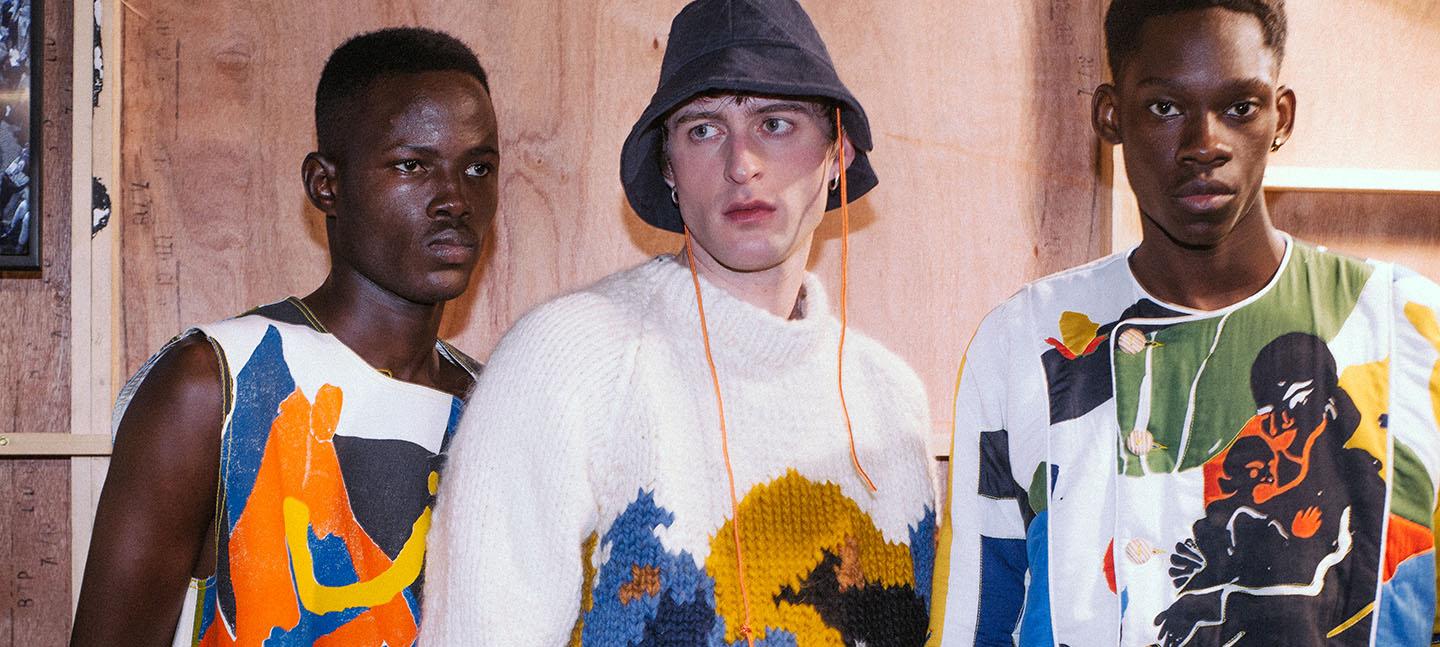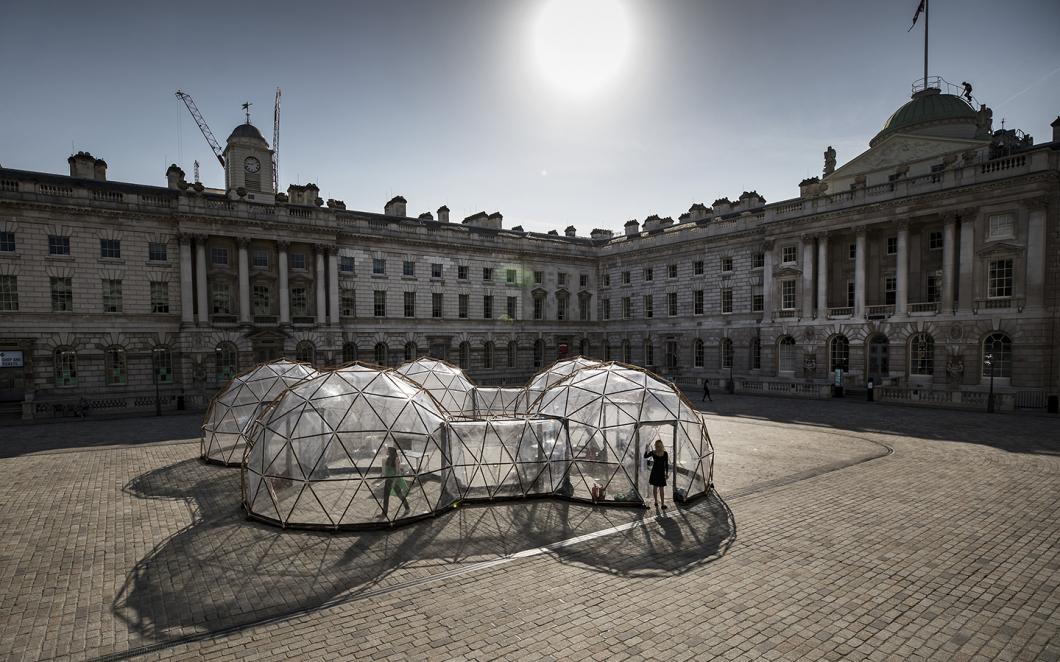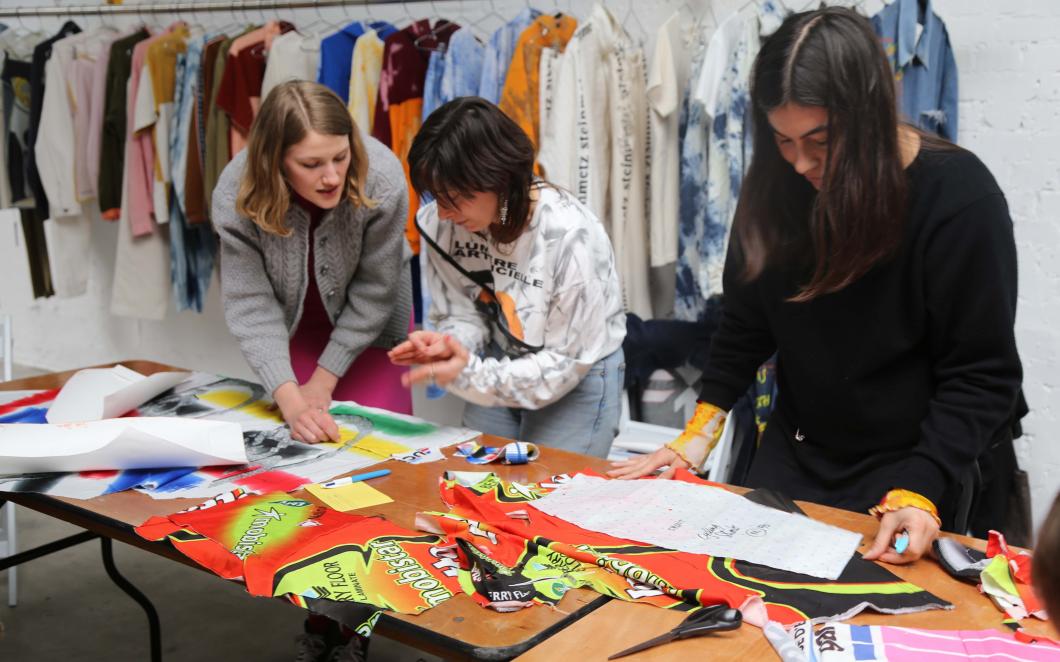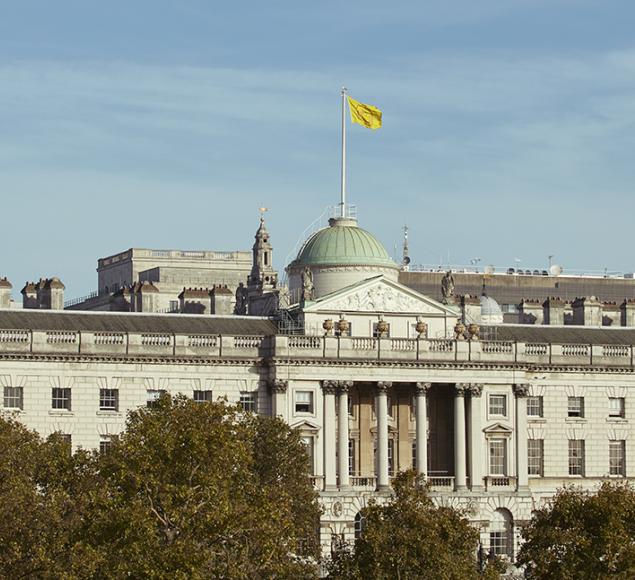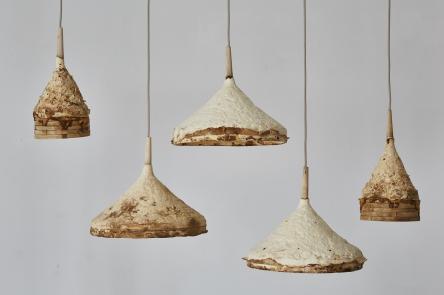This year we’ve commissioned fashion designer Bethany Williams to lead our Earth Day activities with her new work entitled All Our Children. Kicking off on Earth Day itself with a live Q&A and the first in a series of DIY workshops, Bethany invites everyone to take part in her ongoing research process over the next months which will result in her next fashion collection later in the year. Together we’ll be exploring what it really is that we want to pass on to future generations who, ultimately, will be the worst impacted by climate breakdown.
Bethany is well known for a socially engaged approach to making clothes and I’ve been fascinated by the systems thinking deeply embedded in her work. She not only conceptually references social and political realities such as the hostile environment, but also works with real people and organisations to do something about it. As part of her All Our Children project she’s been working with The Magpie Project in Newham who support vulnerably housed women and their under-5s.
Bethany’s work might not seem ‘climate themed’ beyond the obvious exclusive uses of recycled/organic/ sustainably sourced materials in the production of her work. However, Bethany’s focus on the most vulnerable in our society is an important takeaway for thinking about climate breakdown overall. Locally and internationally, it is always the most socially and economically vulnerable people who will be worst impacted by any crisis and therefore social justice has to be explored in parallel to action on climate.
As part of our Earth Day programme this year we’re also working with Fashion Revolution, an international campaign started in response to the collapse of the Ranza Plaza garment factory in Bangladesh in 2013. Together we’re hosting a Fashion Open Studio as part of our Creative Careers programme, and hearing from different designers all thinking through the environmental and social impact of their work in different ways. The fashion industry itself is the is said to be the second most polluting industry in the world and particularly at the most commercial end of the sector, depends on labour from some of most vulnerable and lowest paid workers globally who are also often on the frontline of environmental destruction. But it is hugely influential culturally, and Bethany together with many others are using their media platform and creative practice not only to create beautiful innovative work, but also lead this creative sector and prototype new ways that can have positive social and environmental impact overall.
I highly recommend using Earth Day 2020 to do some thinking, reading and (most importantly!) conversing around some of these ideas. In these uncertain times it is clearer than ever how connected and interdependent we all are – health wise, economically, socially… We look to artists and creatives of all backgrounds to help us imagine better ways of living, making and thriving post-Covid-19 and crucially post-climate emergency. Let’s all get a bit more creative about our futures together.
